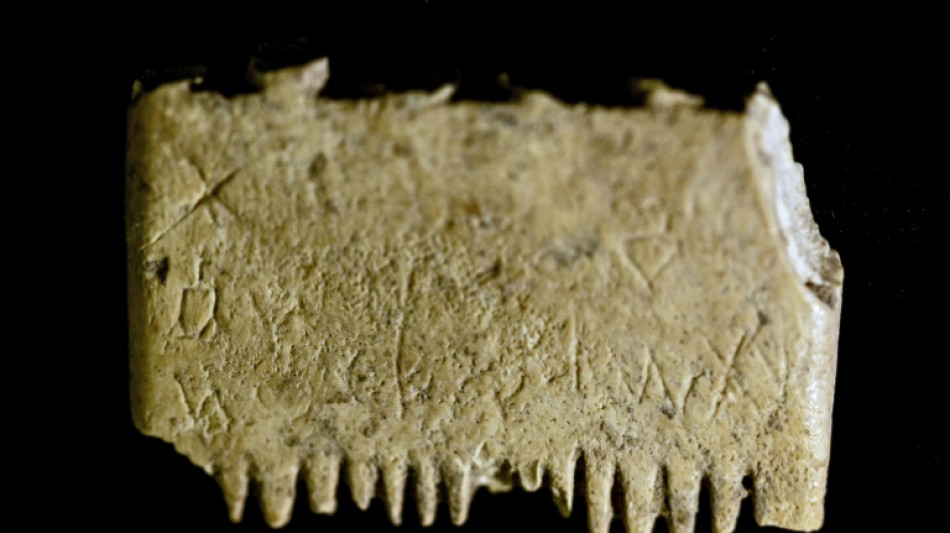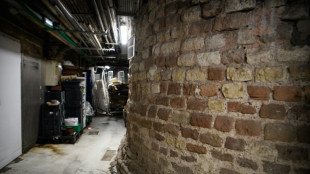

Rare Canaanite inscription found on ivory comb in Israel
A rare inscription that sheds new light on the use of Canaanite language some 3,700 years ago has been discovered on an ivory comb in southern Israel, archaeologists said Wednesday.
The comb was found at the Tel Lachish site in 2017, but the letters were not noticed until earlier this year following further examination, the Hebrew University of Jerusalem said in a statement.
The artefact provides "direct evidence" of the use of the Canaanite alphabet in daily life, said Yosef Garfinkel, an archaeology professor at Hebrew University.
The 17 letters inscribed on the comb, which was used to remove lice, form seven words that translate to "May this tusk root out the lice of the hair and the beard," the statement said.
"This is the first sentence ever found in the Canaanite language in Israel," Garfinkel noted, calling it "a landmark in the history of the human ability to write".
Lachish, about 40 kilometres (25 miles) southwest of Jerusalem, was a key Canaanite city.
Archaeologists have found 10 inscriptions there, but the comb marks the first "entire verbal sentence" written in the language spoken by the inhabitants of ancient Lachish, the statement said.
It noted the comb itself was likely an imported luxury object, as there were no elephants in Canaan, and therefore no ivory.
R.Abate--IM




